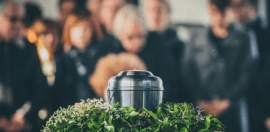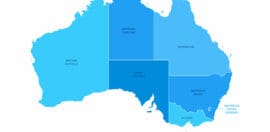Human rights at risk during COVID-19 response

15 April 2020 at 4:27 pm
Experts are keeping a close eye on the actions of Australian governments during the coronavirus crisis
The coronavirus pandemic has led to a nation-wide lockdown and an expansion of government and police powers to stop the spread of the disease. But there are fears these increased powers could lead to a raft of human rights abuses.
We take a look at some of the sector’s major concerns.
Disability groups sign COVID-19 Statement of Concern
Australian human rights, bioethics and disability experts on Wednesday released a Statement of Concern, emphasising key human rights principles needed to underpin ethical decision making in the context of disability and COVID-19.
Experts say people with disability are at much greater risk during the COVID-19 pandemic and need to be protected.
Rosemary Kayess, vice-chair of the United Nations Committee on the Rights of Persons with Disabilities, said she was concerned that the increasing demand on critical health treatments would “require decisions to be made about life-saving treatment that could seriously undermine the rights of people with disability.”
Professor of Bioethics Jackie Leach Scully said international experience during this pandemic showed that health directives and medical decision-making protocols provided an “underlying, pervasive and often unquestioned devaluing” of the disability community.
“We are concerned, along with all people with disability, about similar ableist practices and protocols being replicated in Australia,” Leach Scully said.
Signatories to the statement proposed several human rights principles for ethical decision-making.
This includes ensuring that health care is not denied or limited to people with disability on the basis of impairment, that informed consent is given to people with disability, and that ethical decision-making frameworks are designed with the active involvement of disability representative organisations.
Human rights groups wary of expansion of digital surveillance
The federal government is reportedly set to unveil a mobile phone app that tracks people with coronavirus and those they come into contact with.
The government believes this approach – which is already taking place in Singapore – could accelerate the end of lockdown if enough people sign up to it.
But while the app would be voluntary, human rights groups are wary about its effect on people’s privacy.
Digital Rights Watch chair Lizzie O’Shea said after years of the government attacking personal privacy, the idea was bound to be met with skepticism.
“Without robust transparency processes around what data is collected and how it will be used, and unimpeachable guarantees that the data will be used for one purpose only, people in Australia have every reason to be concerned about a location-tracking app from the government,” O’Shea said.
“No public trust means people will hesitate to install the app, and not-very-subtly coercing people by saying restrictions could ease if surveillance increases is an appalling way to start.”
O’Shea said everything about the app needed to be transparent, with the code independently audited, and a clear benchmark for when data will no longer be collected.
She also questioned whether the app would achieve its objectives, noting in Singapore only 20 per cent of people signed up to it.
The Australian government said a 40 per cent uptake here was needed for it to be effective.
“It is far from clear that such an app will even be effective at the primary task. There is a real risk of false positives, as unless and until we have widespread testing, even the best technology in the world cannot fix the problem,” O’Shea said.
“Such technological tools need a social licence to operate effectively, and the government has a long way to go before it comes close to earning it.”
These comments come two weeks after a global coalition of 100 human rights and civil liberties organisations signed a joint statement urging governments not to use the coronavirus pandemic as a cover to usher in digital surveillance.
Community groups outline human rights issues
More than 200 community groups have backed a report calling on the Australian government to strengthen its commitment to human rights amid the coronavirus crisis.
The report – prepared ahead of a United Nations Human Rights Council review of Australia – said COVID-19 was likely to exacerbate existing human rights problems across the country.
It said the NGO sector was watching the Australian government’s responses carefully.
“We remain vigilant to protecting and promoting the human rights of people in our communities especially at this time,” the report said.
“Emergency powers must be time bound and proportionate. They cannot undermine our democratic foundations or exacerbate inequality for years to come.”
Cathryn Eatock, co-chair of the Indigenous Peoples Organisation, said overcrowding in remote Aboriginal communities left Indigenous communities particularly vulnerable to the coronavirus.
“This health crisis requires working with Aboriginal people to urgently address the shortfall in housing and services, while fiercely protecting Aboriginal communities from the spread of this virus,” Eatock said.
Dr Merrindahl Andrew, program manager of the Australian Women Against Violence Alliance, added that many women were subjected to discrimination due to their gender intersecting with the impacts of racism, homophobia, ableism, and other forms of structural oppression.
“The COVID-19 pandemic and the necessary steps that communities are taking to limit its spread can be expected to exacerbate many of these forms of violence and discrimination,” Andrew said.
“Making it even more urgent that increased resources be devoted to community-led and specialist services, and that programs be informed by an intersectional gender analysis.”








So it will be voluntary?
The only way for this plan to work is to force people who are diagnosed with COVID-19 to install this app or put ankle bracelets on them so they can be tracked.
Goodbye democracy.
boarder closures have left black market for cannabis dry, forcing disability pensioners to pay 3x price for legal bud, that is $30 a gram vs $10. That means 1 gram a day will cost $900 a month plus doctors fess, pension after rent id $730, so Just over $200 for food, telecommunications, gas, electricity, travel and other expenses. Stress up in pandemic and isolation, most use herb for pain or stress. Senate Inquiry into medical cannabis access suggests amnesty or compassionate access. UN Convention on rights of disabled include support for expenses to treat disability, * section 23 A ). but neither State nor Fed system will include cannabis in it’s list of subzsidised (PBAC) or stocked (public hospital pharmacy) list to help disabled living below pverty line affordable legal access, leaving no access now boarders closed.